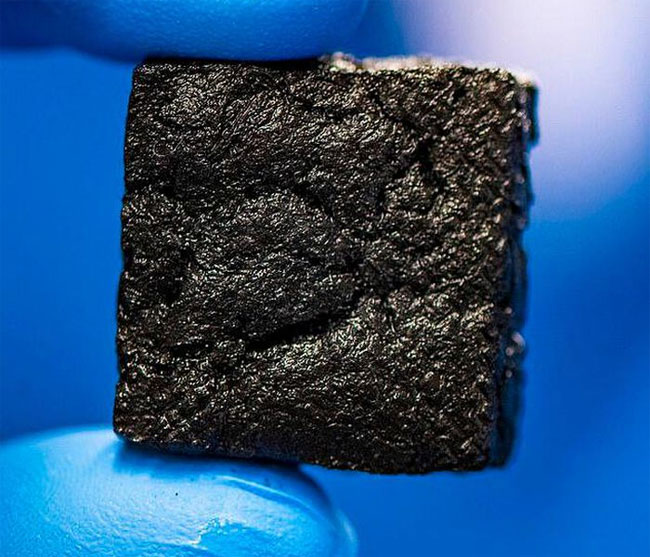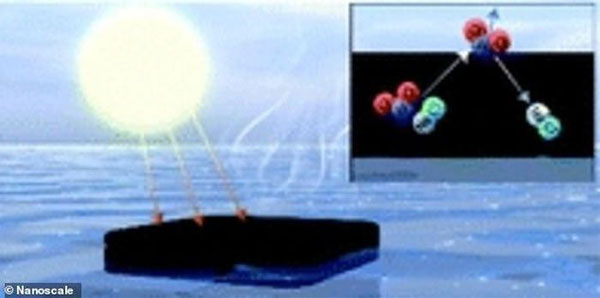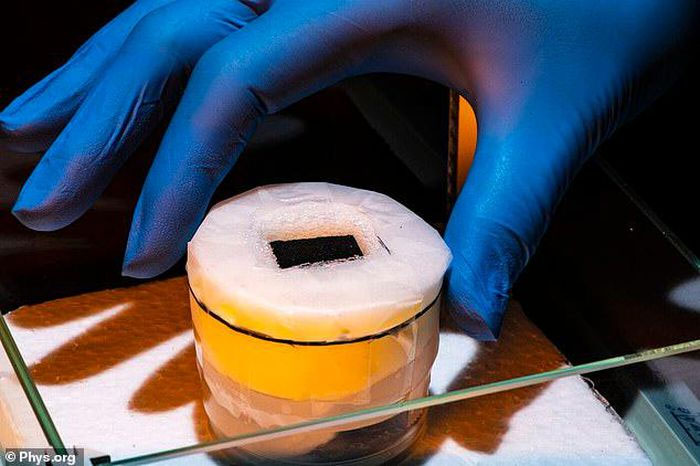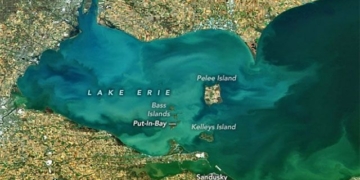In addition to being used as fertilizer, researchers are using cow dung to filter seawater into pure freshwater.
According to the Daily Mail (UK), scientists at Northeastern University (USA) have developed a process to convert cow dung into a filter, which helps eliminate bacteria and desalinate seawater into pure water. They hope this innovation can address the global water crisis.

Scientists at Northeastern University have developed a process to convert animal waste into a filter (shown in the image) to purify seawater into freshwater. (Photo: Phys.org)
By breaking down the structure of cow dung at extremely high temperatures, scientists have decomposed it into carbon powder and then transformed it into black sponge-like pieces. These sponges are floated on the surface of seawater, and when sunlight hits them, the water beneath the black material turns into vapor, permeates through the sponge filter, and forms drinkable water.
According to UNICEF, approximately 1.42 billion people live in water-scarce areas, and only 3% of the Earth’s water is drinkable. Given this situation, many scientists are tirelessly working to find ways to convert seawater into freshwater.

An illustration of sunlight shining on the floating sponge filter on the seawater surface. (Photo: Nanoscale)
Currently, the commonly used solution is a desalination system that removes salt from seawater. This process is known as desalination, but the equipment used in this process often encounters issues.
Mr. Yi Zheng, a professor at Northeastern University, stated: “The materials used in this process are very expensive and not sustainable. Moreover, the entire desalination process consumes a lot of electricity.”
Based on the idea of filtering water, Mr. Zheng sought a more sustainable energy source, which is sunlight. However, this process does not require solar panels; it simply utilizes sunlight to activate the water filtration process.
He collected a large amount of cow dung from local farms and decomposed this material at temperatures up to 1,700 degrees Celsius to kill any bacteria. After removing the bacteria, the cow dung is transformed into carbon powder. The scientists then convert this into a sponge form to filter salt from seawater.

By blasting dung at high temperatures, scientists have decomposed it into carbon powder that forms the filter sponge. (Photo: Phys.org)
In a statement, the researchers shared: “The water produced from this process is very pure. Its sodium concentration is significantly lower than the standards set by the U.S. Environmental Protection Agency for drinking water. The materials we use in this process are also completely natural and sustainable. They work efficiently at a low cost, are easy to find, and simple to produce,” said Mr. Zheng.
The scientists hope this technology will be transferred to local communities to establish their own desalination systems. This also plays a crucial role in achieving equitable access to drinking water for people worldwide.
“You can’t simply place a nanofabrication facility in a local village or town, but people can easily collect dung from a local farm and decompose it,” Mr. Zheng added.


















































